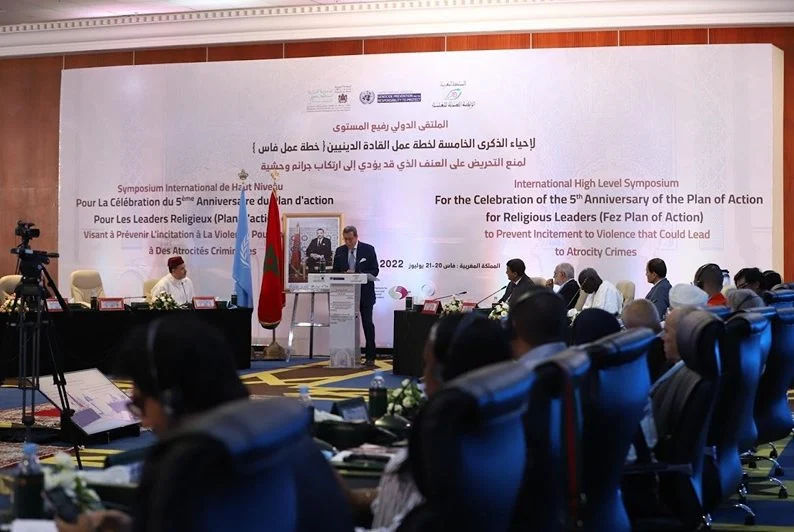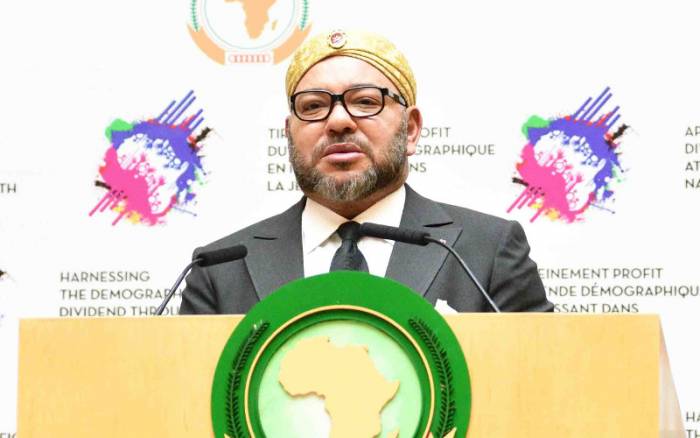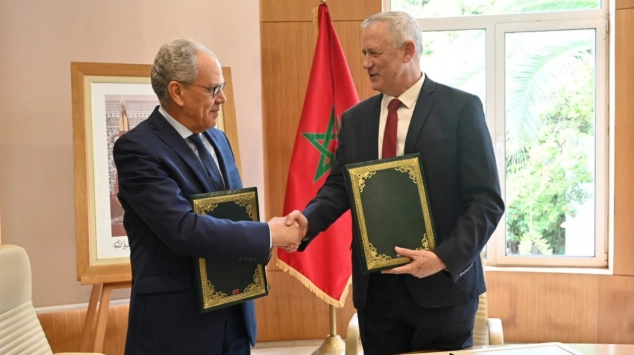Combating hate speech requires a sustained and inclusive commitment, increased efforts by UN member states, practical initiatives to prevent incitement to hatred, and strengthening of the capacities of those involved in combating hate speech, through the involvement of universities and research institutions.
The recommendations were made by participants in a high-level international symposium held in Fez this week, on the occasion of the celebration of the 5th anniversary of the UN Plan of Action for Religious Leaders and Actors on Preventing Incitement to Violence that could lead to Criminal Atrocities, called Fez Plan of Action.
Participants, who noted the importance of the Fez Action Plan as a pioneering document, said it is a lively and responsive roadmap for the protection of the UN pillars of peace and security, respecting and promoting human rights and fundamental freedoms, and stimulating sustainable development for all.
They however made it clear that efforts must be accompanied by initiatives at the local, national and international levels involving religious leaders.
Quoted in a joint statement of the organizers issued at the end of the Symposium, participants called for greater efforts and resources to be allocated to support implementation, with special attention paid to supporting religious leaders and faith-based organizations and women and youth of faith.
They also stressed that it was critical that Member States remained fully engaged and supportive of the Fez Plan of Action, in line with General Assembly resolutions on Promoting interreligious and intercultural dialogue and tolerance in countering hate speech.
Likewise, they recommended a stronger collaboration with international and regional human rights mechanisms as well as the United Nations field entities to foster the implementation of the Fez Plan of Action.
Participants also called to translate the Plan of Action widely, including in local languages, and allow access to people with disability to increase its outreach and impact in local contexts, where it is needed the most. In addition, they urged for implementation efforts to be mapped out, monitored, and evaluated.
The symposium also focused on good practices and lessons learned from the implementation of the Fez Plan of Action and examined ways and mechanisms for implementing the document to support international efforts to establish a foundation for peace and security, promote human rights and foster sustainable development.
For two days, participants focused on multiple topics, including the role of religious leaders in promoting peaceful, inclusive and just societies, strengthening support for the implementation of the Fez Action Plan at the international level, gender approach in further implementing the Plan, especially through empowering and enhancing the role of women and youth, highlighting experiences and best practices.
In a message to the symposium, UN Secretary-General, Antonio Guterres, commended the Fez Plan of Action for its commitment to promoting peace, understanding, mutual respect and the fundamental rights of all peoples.
Guterres highlighted the importance of this initiative which outlined the multiple ways in which religious leaders can contribute to peace and stability.
“I welcome this Plan for its commitment to promoting peace, understanding, mutual respect and the fundamental rights of all peoples, and for presenting the multiple ways through which religious leaders can contribute to achieving peace and stability,” he said.
The UN Chief stressed the importance of “this spirit of compassion and cooperation” at a time when the world is “in turmoil”.
For her part, Deputy Secretary-General and Special Adviser on the Prevention of Genocide to UN Secretary-General, Alice Wairimu Nderitu, underlined the importance of this symposium and of the Fez Action Plan.
“We have traveled the world with this action plan. I traveled everywhere: Bangladesh, Central African Republic, Iraq, Bosnia-Herzegovina, Germany, and many other countries in the world to discuss this document and what we can do with it,” she said.
Ms. Wairimu Nderitu commended Morocco’s role in the adoption of the resolution proclaiming an International Day against hate speech which is June 18 of each year. “We are very grateful to the Kingdom of Morocco for all its initiatives,” she said.
In an address before the symposium, Morocco permanent representative to the UN Omar Hilale underlines the Kingdom’s commitment to the universal values of peace, religious tolerance, and dialogue between cultures and civilizations.
The symposium was co-organized by the Inter-ministerial Delegation for Human Rights and the Rabita Mohammadia of Ulemas, in partnership with the United Nations Office for the Prevention of Genocide and the Responsibility to Protect (OSAPG).



